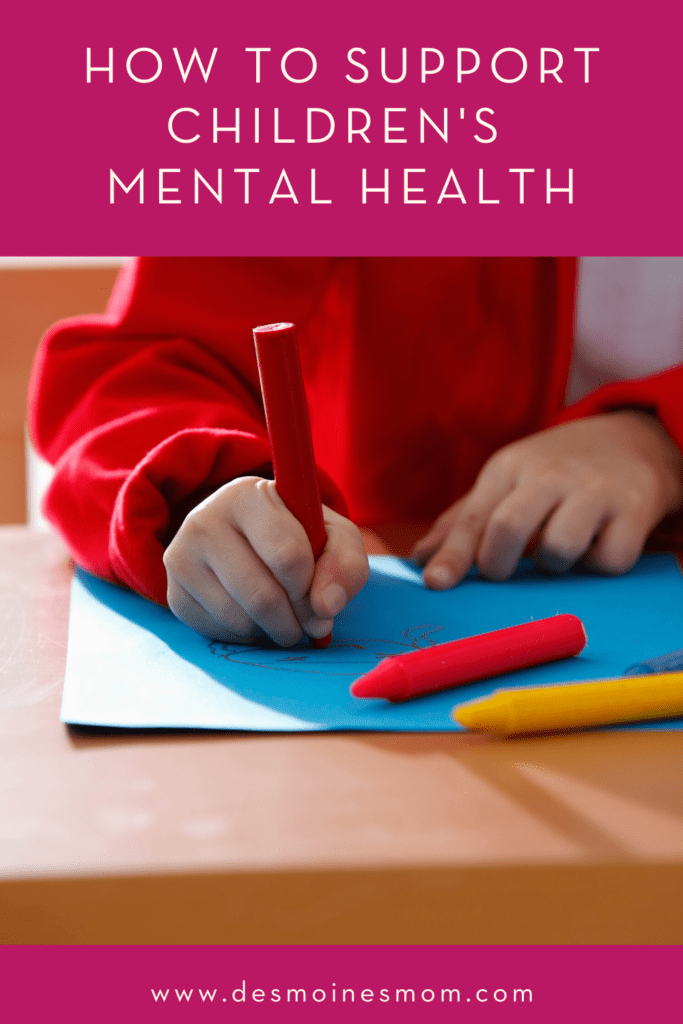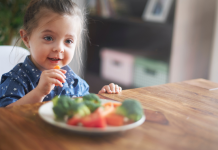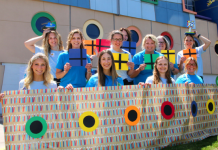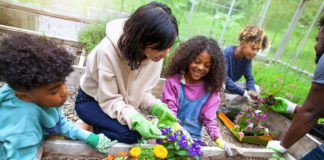 When all this started, my husband and I talked to our daughters (ages 9 and 7) about what a pandemic means. We did it in an age-appropriate way, including the severity of it, but also had a very positive outlook. We also reminded them to, “Focus on the helpers!”
When all this started, my husband and I talked to our daughters (ages 9 and 7) about what a pandemic means. We did it in an age-appropriate way, including the severity of it, but also had a very positive outlook. We also reminded them to, “Focus on the helpers!”
I even saw it as an opportunity to slow down, catch up on stuff I’ve been putting off. And this was my approach until they announced school closures were going to be extended until April 30 and now the rest of the school year.
Then reality began to set in a little more and the heaviness of it all started to impact my own emotional well being. Which led me to wonder how this all was impacting my kids.
I shared the news that they would not be going back until at least the 30th and could see the wheels turning in my oldest’s (9) eyes. When her sister was off playing, we talked about what this means for her, our family, our community, and the world. I asked her how she was feeling. Her response stunned me.
“Scared. Sad. Because people are getting sick and dying. I’m scared that someone in our house could get sick. Sad that I don’t get to back to school yet. I miss my teachers. I miss my friends. I want to go back to school.”
My mama heart ached.
I was shocked these thoughts had been stirring in her head for this long and I didn’t know. We sat together and I gave her a hug. I got teary-eyed.
That’s when I realized that even if they hadn’t/couldn’t verbalize it, they are feeling all the feelings.
Despite my spin on things to make it fun and positive, and yes- we were enjoying the time together- this is a HUGE change. One day they are going to school, business as usual, and the next, a sudden halt to everything that is routine, same, and known.
Of course, of course, of course their little brains would be furiously trying to piece this together!
Imagine all the adult feelings we have experienced since dealing with this pandemic. Now put those in a small body that is still developing and learning what all these emotions are, on top of also dealing with this change.
Shortly after this realization, I intentionally integrated “emotional curriculum” into our day. These are some of the things we’ve been doing to support children’s mental health.
Easy Ways to Focus on Children’s Mental Health
Journal together
I give my kids brief prompts- “I feel x” or I am grateful for x. One thing that I’m worried about, etc.
Do mindfulness exercises
We’ve been using coloring sheets while listening to classical or spa music. “Alexa play spa music” is a favorite to listen to lately.
Practice deep breathing
- Pretend to smell a flower and then blowing out to make the leaves/petals blow away.
- Another exercise is square breathing. Draw a square with your finger in the air, inhaling/exhaling at each line.
- Sesame Street has an ADORABLE belly breathing video for younger children.
- Calm is also a great app that kids can use.
- Get out bubbles and practice breathing by blowing bubbles.
- For older kids, imagine they’re blowing a BIG bubble with bubble gum.

Try Yoga
We love Cosmic Yoga Kids.
Cross the midline
Activities that cross the midline (arms and legs crossing the middle of your body to the opposite sides) promote the coordination and communication of both sides of our brain, which also helps emotional regulation by “turning” on both sides of the brain, or using whole-brain thinking. Some examples of activities you can do to help with this include:
- Big drawings- draw/color by making large strokes across the paperback and forth not up and down
- Dance or yoga- Our favorites are cosmic yoga or Go Noodle
- Clapping games
Talk about feelings
Model how you’re feeling. It’s ok to show or say you’re feeling sad. It’s also ok to show them how you’re dealing with that in a healthy way, by taking care of yourself and mental health, too!
Check-in daily
As a family we check-in with one another and label how we’re feeling. We give the opportunity to share and expand or just say the feeling word they are experiencing.
Even my 7-year-old who I thought was living gloriously in her pajamas is feeling the change. Hers comes in the form of meltdowns and “I cant’s” in school work she has mastered months ago. When a redirection or “no” feels like the end of the world. So much is out of their control that in these moments, I remind myself- this is her way of grasping onto what little control she can- which might mean what schoolwork she refuses to do. Or refuses to brush her teeth or do a chore. These instances have increased over the last few weeks and have been challenging and frustrating.


















